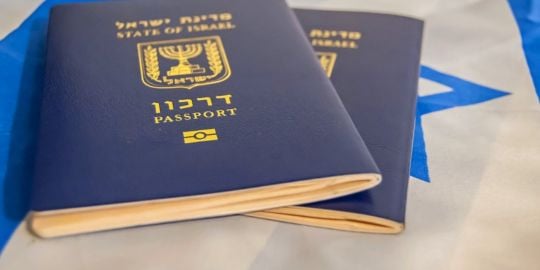Residence permits for Israel

The State of Israel was created in order to establish a Jewish homeland, and while everything is made to facilitate the immigration of overseas Jews to Israel, non-Jews may find it more difficult to obtain a permanent residence permit.
Getting a residence permit in Israel as a Jew
The huge majority of expats living in Israel have relocated for religious motives. Israel's Law of Return states that all Jews can settle freely in the country. The immigration visa granted under the Law of Return, called "Oleh Visa', will entitle you to a Teudat Oleh (Immigration document) and a Teudat Zehut (ID card), which will give you full residence rights and access to all applicable social benefits in Israel.
As an Oleh, you will automatically be awarded Israeli citizenship 90 days after your date of entry into the country, unless you opt out, in which case you will keep permanent resident status.
Getting a residence permit in Israel as a non-Jew
Foreign spouses and partners of Israeli nationals
A non-Israeli national married to an Israeli citizen can be entitled to temporary residence in the country (which opens rights to social benefits such as health insurance) after an average 6 months, and citizenship after 4 years spent in the country and a series of interviews and inspections to test the depth and sincerity of the couple's commitment.
For unmarried couples, whether they are different- or same-sex, the process is similar however lengthier: civil partners of Israeli citizens have to wait 3 years to be granted a temporary resident status, and 6 years for a permanent residence status. Even at the term of this period, they can not claim Israeli citizenship.
Others
Non-Jews without family bonds in Israel can stay in the country longer than 3 months provided they find an Israeli employer and obtain a work visa. This is doubtlessly the easier way to set foot in the country.
Later on, non-Jews can apply for permanent residence status in Israel if they can document sound reasons for wishing to stay in the country (a good example being Christian clergy-members working in Jerusalem).
Non-Jews obtaining permanent residency in Israel remain somewhat rare, and permits are granted on a case by case basis, after thorough study of the applicant's situation, profile and motives by the Immigration authorities and the Ministry of the Interior. You are advised to contact the country's officials for personalised information and advice.
Finally, a foreign resident may under some conditions obtain Israeli citizenship by naturalisation after 5 years in the country.
Useful links:









